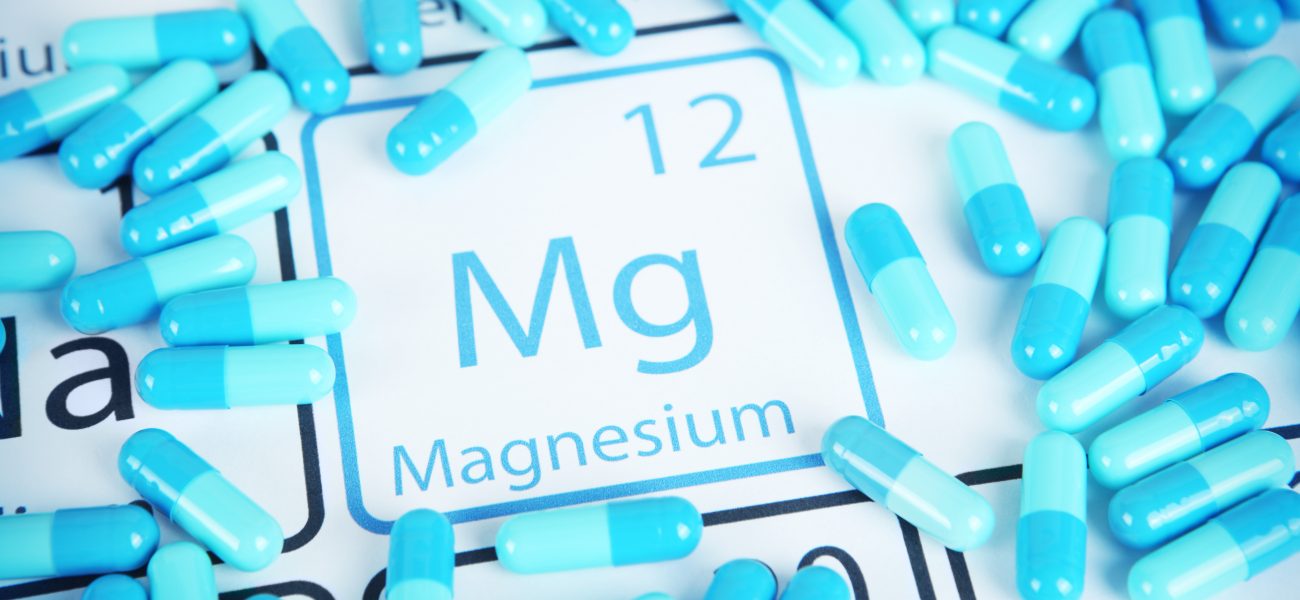The mineral Magnesium has been talked about quite a bit in the media recently – one example being on the BBC Show Trust Me I’m a Doctor and on BBC Radio 2 breakfast show. And while it definitely deserves the air time, there is still a lot of confusion about what the benefits of magnesium supplementation are. Magnesium is naturally present in many foods, added to other food products and available as a dietary supplement. Within the body’s cells, it serves literally hundreds of functions. Magnesium is not produced by the body, so it needs to be ingested daily through magnesium-rich foods such as whole grain cereals, leafy greens, nuts and seeds. Eating a variety of foods will help you meet and maintain magnesium requirements, and provide you with other essential vitamins and minerals. It is important to understand that following a healthy balanced diet should provide all the magnesium required.
-
- What is magnesium is used for? Magnesium helps to release energy from food. It also assists with normal muscle function, contributes to electrolyte balance and helps keep tiredness at bay. Maintaining the right balance of electrolytes, such as potassium, is important because it helps keep your body’s blood chemistry and other processes balanced. Magnesium also works with calcium and vitamin D to help support your skeleton. Magnesium helps the parathyroid glands, which produce hormones that are also important for healthy bones.
-
- What are the signs of magnesium deficiency? In the short term, getting too little magnesium does not produce obvious symptoms. When healthy people have low intakes, the kidneys help retain magnesium by limiting the amount lost in urine. You should be able to get all you need from a healthy, balanced diet but, if you are concerned you are not getting enough magnesium, speak to your GP.
Not getting enough Magnesium may be more noticeable if you exercise heavily. Research suggests exercise encourages a redistribution of magnesium in the body to accommodate metabolic needs, and that marginal magnesium deficiency may impair exercise performance.
- What are the signs of magnesium deficiency? In the short term, getting too little magnesium does not produce obvious symptoms. When healthy people have low intakes, the kidneys help retain magnesium by limiting the amount lost in urine. You should be able to get all you need from a healthy, balanced diet but, if you are concerned you are not getting enough magnesium, speak to your GP.
- What does a magnesium supplement do? If you are lacking in nutrients from natural sources, vitamin and mineral supplements can help to fill any nutritional gaps. Take note: you don’t need any more magnesium than the recommended daily intake (270mg a day for women). VÖOST are a supplier of effervescent vitamins and minerals, including magnesium. VÖOST products contain no added dairy, lactose or yeast, and are simply added to 200ml of water and enjoyed.




















